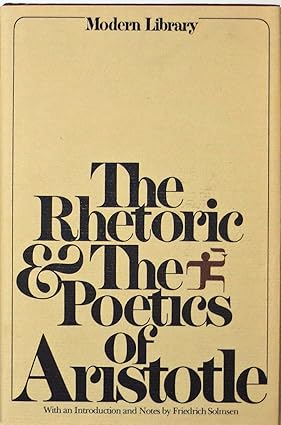 Inglés
InglésThe Rhetoric And Poetics Of Aristotle Hardcover
Modern LibraryArrendar
Recíbelo en 24-48 horas arrendado
Cotizar Título
Confirmar Disponibilidad para Compra
The Rhetoric and Poetics of Aristotle explores two significant branches of philosophy: rhetoric and poetics. In his work on rhetoric, Aristotle focuses on the art of persuasion, discussing the use of language to influence an audience. He introduces the concept of ethos, pathos, and logos as the core components of persuasive speech. Ethos relates to the credibility and character of the speaker, pathos to the emotional appeal made to the audience, and logos to the logical structure and reasoning of the argument. Aristotle also identifies various rhetorical strategies, such as the use of examples, metaphors, and the proper structuring of arguments. He emphasizes that the goal of rhetoric is not merely to persuade, but to achieve a truthful and ethical form of persuasion that leads to genuine understanding.
In his work on poetics, Aristotle shifts his focus to the elements of drama, particularly tragedy, and its role in evoking catharsis, a purging or cleansing of emotions such as pity and fear. He outlines the components of a tragic play, including plot, character, thought, diction, melody, and spectacle, with plot being the most crucial element. Aristotle argues that a well-constructed plot should follow a logical sequence, involving a reversal of fortune (peripeteia) and a recognition (anagnorisis) that leads to a moment of enlightenment for the protagonist. Through these dramatic elements, Aristotle emphasizes the power of storytelling in both reflecting and shaping human experience, proposing that good literature can both entertain and educate, offering profound insights into human nature and society.